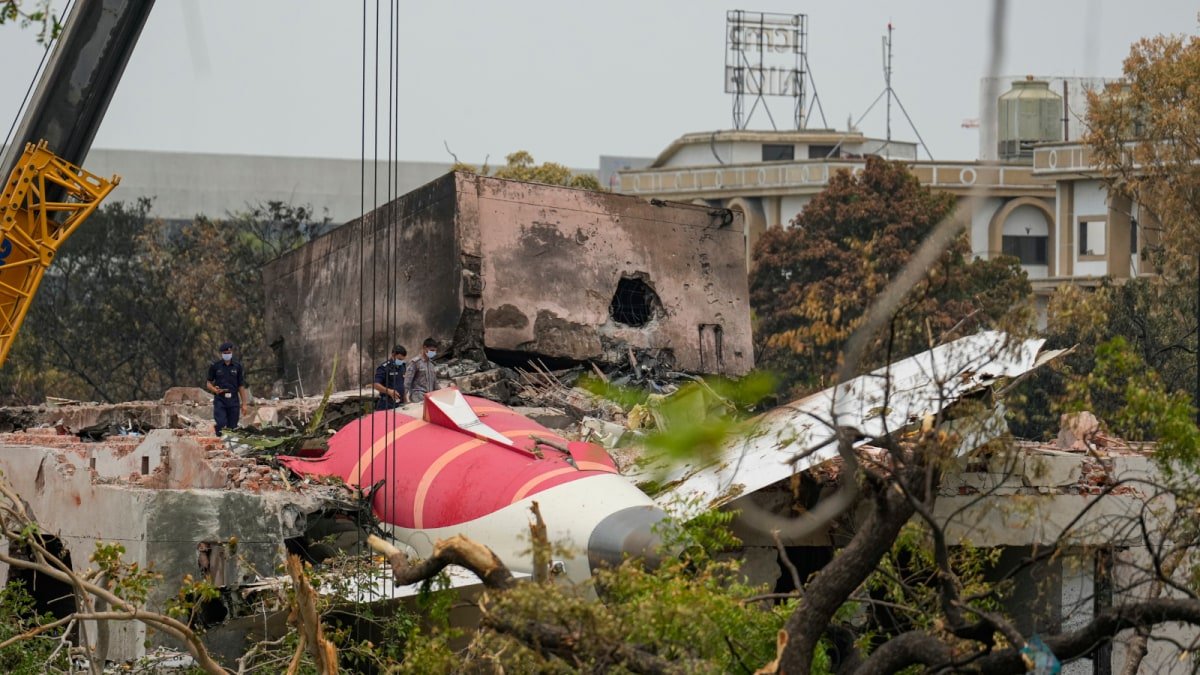Last Updated:June 19, 2025, 17:02 IST
If no legal heir claims the gold or other belongings, they are held as unclaimed property for seven years; after that, ownership transfers to the government as per existing rules
The recovered gold, cash, and other items are in the custody of the police or relevant government officials. (PTI/File)
In the aftermath of the Air India AI-171 crash in Ahmedabad on June 12, authorities have recovered several valuable and personal items from the wreckage—including 70 tolas of gold jewellery (approximately 800 grams), Rs 80,000 in cash, a copy of the Bhagavad Gita, and multiple passports. The recovered belongings, now secured by the government, have sparked questions over their rightful ownership, especially with the gold jewellery valued in lakhs of rupees.
According to Indian law, valuable items recovered from accident sites can be dealt with in several ways. For now, the gold is secured by the government until the rightful claimant is identified. If no claimant comes forward, these valuables will be deposited in the government treasury.
What Should Govt Do With The Recovered Valuables?
The recovered gold, cash, and other items are in the custody of the police or relevant government officials, such as the district administration. These items are stored in government treasuries or lockers for safekeeping. Gujarat Home Minister Harsh Sanghvi announced on June 15, 2025, that all recovered items would be identified and handed over to the closest relatives of the deceased. The government’s priority is to identify the rightful claimants.
How Will The Claimants Be Identified?
The identification of the heirs involves DNA matching and documentary verification of the passengers killed in the crash. Given that 241 passengers and more than 28 people on the ground perished in the accident, DNA testing is necessary to identify the bodies. Ownership of the gold and other items will also be determined through this process.
Additionally, items will be matched using passengers’ luggage details, such as passports, tickets, or baggage receipts, along with information provided by their families. Any available documents or evidence, like jewellery purchase receipts, can facilitate the identification process.
Who Are Legal Heirs?
Under Indian law, the deceased’s property, including gold and cash, is transferred to their legal heirs. This process is governed by the Hindu Succession Act for Hindus, Muslim Personal Law for Muslims, and the Indian Succession Act 1925 for Christians.
What If No Claimant Is Found
If no legal heir claims the gold or other items, they are categorised as unclaimed property. Such property remains under government possession for a specified period, usually seven years. If no claimant is found within this period, the property becomes the government’s. In cases where passengers had insured their luggage, identified heirs will also receive compensation.
How Many Passengers Have Been Identified So Far
Media reports indicate that 162 deceased individuals have been identified through DNA testing since the crash. The process of returning recovered items to their families has commenced. Keeping such items without reporting can be considered an offence under Section 403 (criminal breach of trust) or Section 406 (criminal breach of trust) of the Indian Penal Code (IPC).
- First Published:
#Grams #Gold #Cash #Collected #Air #India #Wreckage #India #News



